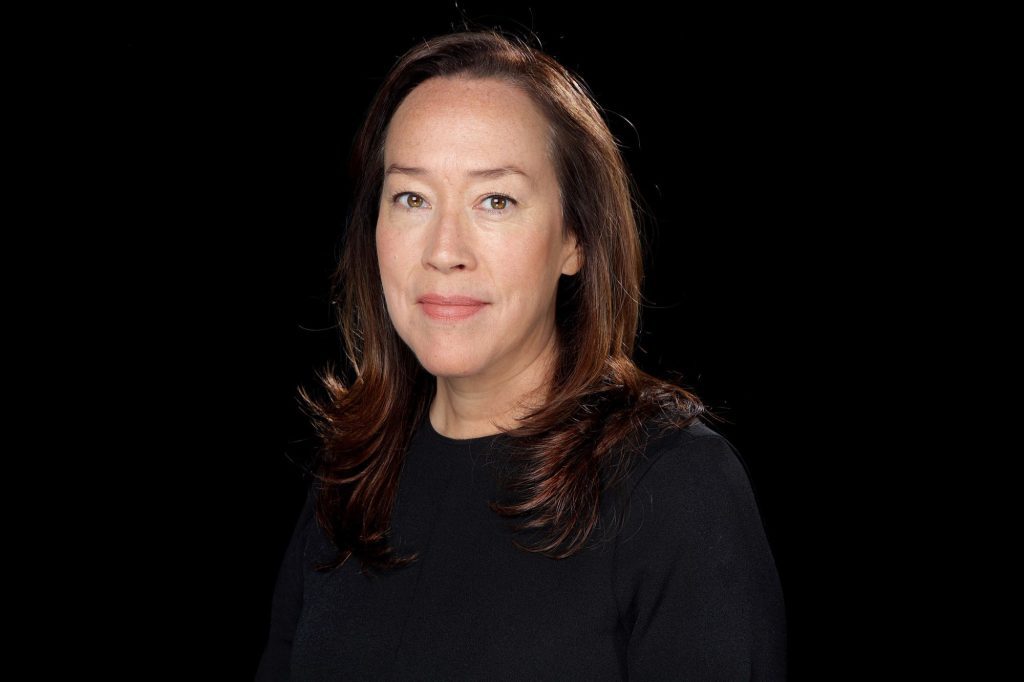If you're a director based in Chicago, of any age, and perhaps in film school seeking insight and wisdom from a seasoned filmmaker, mark April 5 as an important date. Karyn Kusama will be leading a master class on directing for television and film, sharing her extensive experience and struggles.
On April 5, Cinema/Chicago will host a master class led by Karyn Kusama, the renowned director, screenwriter, and producer, as part of its event series. The session, titled “Directing for Television and Film,” reflects Kusama's straightforward approach.
Karyn Kusama faced numerous challenges before making her debut film “Girlfight” in 2000, including resistance to casting Michelle Rodriguez as the lead. Despite financial obstacles, her determination paid off when the film gained success.
Kusama's first film, “Girlfight”, was made for $1 million, while her second, “Aeon Flux”, had a budget 62 times larger. Despite facing studio interference and financial setbacks, Kusama's career mirrors the ups and downs typical of filmmakers straddling independent and mainstream work.
One of Kusama's notable films is her 2015 indie “The Invitation,” which was shot on a low budget and has been praised for its impact. Her work has been highly successful and impactful. The ending of “The Invitation,” reminiscent of 70s thrillers, delivers a powerful, chilling twist.
Recently, Kusama has found success in television, particularly with Showtime’s “Yellowjackets,” a series she executive produces. She will also be working on AMC's “The Terror” this summer, showcasing her versatility across different platforms.
I spoke with Karyn Kusama to gain insight into her career and experiences, as she shared her thoughts from her home in Los Feliz, LA.
Q: Is the question 'How am I going to make a living?' frequently raised in your master classes? the A: Yes, that question is always relevant and is sometimes overshadowed by discussions about personal vision and art-making. It's crucial to find a professional path in this industry that allows us to sustain ourselves financially.
A: It’s the evergreen question, and it has a way of getting overlooked sometimes in relation to matters of personal vision and art-making. Finding a professional path we can actually survive on — how to make this industry and art form work for us, as professionals — that’s the question. And it’s become even more pressing these last couple of years.
I think I’ve gained a lot of knowledge in my 25 years in the business, but I’m amazed at how it always keeps changing. And so quickly. In my own work, I’m considering a lot about stimulating and inspiring an audience to develop a more thoughtful attention span. The attention span of viewers has significantly shifted away from … paying attention (laughs). I mean, that’s just the noise of our particular world right now. But it’s an important mission: to get people to sit down and watch something with total engagement. That’s a high bar as a filmmaker to achieve, and it’s a high bar for the viewer. I wish it were easier. But I’m open to the challenge of it.
Q: You directed the first episode of “Yellowjackets.” This was just before the pandemic?
A: We had our last day of editing the day before the national lockdown in March 2020. Right down to the wire. I remember thinking: Huh. I wonder how bad this virus might be? (With the pilot) we had to be mindful of a television audience required to make a lot of connections between a character we establish as played by a teenaged actor and then that character’s adult counterpart. There were so many things in that first episode we wanted to feel effortlessly connected, hopefully, for the audience. While staying engaging. That’s a constant mission for any filmmaker. Keeping questions about the story alive, while answering enough of them so that a viewer doesn’t feel lost.
Q: So: clear. And interesting.
A: Clear, but just clear enough. And engaging. That’s a tough balance to strike.
Q: It reminds me of your Trailers From Hell segment on “The Parallax View,” the 1974 Alan J. Pakula film. I’m a little older than you but we both saw that at a pretty young age —
A: I just saw a print of that here in LA at the Egyptian Theatre last week! It was so great to watch it on the big screen again. And to be reminded how mysterious that movie is. Inspiring, really. A true artifact of a great era in filmmaking.
Q: There’s a lot of small-screen production going on in Chicago, as you know. And there’s a lot of uncertainty and anxiety among folks graduating from film school here. Wherever you are, in Chicago, LA or New York — you came through NYU yourself, before working for filmmaker John Sayles — it’s not easy to make the next step. What do you tell students about that?
A: Well, let’s start with this: Chicago is one of the greatest cities in the world. If I could live anywhere other than LA or New York, it would be Chicago. So much about it is historically, architecturally and politically significant to me. I see it as a center of art-making. And I like to instill that sense of local pride (in young filmmakers) of where we come from, where we got our education, wherever we first truly interacted with art. There’s always so much interesting material in the place we come from. I grew up in St. Louis, which always wanted to be Chicago, but for a lot of reasons it didn’t turn out that way. Yet I appreciate everything I got out of living there.
I’ve spoken to some of the film schools in Chicago, and I don’t start with the idea that all the action’s in Los Angeles or New York because I don’t think that’s true. There’s a lot of young talent gaining real skills in Chicago, different from the skills they might’ve gotten from film school in Los Angeles or New York. It’s a more personal community, and a great place to make some lifelong connections. There are times with LA particularly where it just feels vast and impossible.
Q: Coming out of NYU, did New York’s compression or however you want to describe it — did it make things easier?
A: It can. But wherever you are, there’s the chance of doing a lot of the wrong kind of work for a while. I went along a path working on music videos, and industrial videos, which is good training. But I didn’t necessarily find my direction for a while. It helped to meet a filmmaker like John Sayles, who was such a mentor to me, and in many respects a bridge between the indie film world and the studio world, for which he wrote a lot of screenplays. I was really lucky my trajectory led me to him. It takes some time to find those people.
Q: When you talk to groups, based on how you watch movies yourself, is there any advice you feel is important to pass along to younger filmmakers about what to do, literally, with the camera? How to use it in a way that serves the material, and in ways that won’t feel like nobody in particular designed the shot?
A: I think young filmmakers have to identify how they like to see, and what they respond to in the films they love. The films that make them feel something. There are films we may admire, or be impressed by, but for me, the goal in making movies is to make people feel something. I encourage young filmmakers to let a movie work its particular magic on them, and then revisit it in order to unearth what made the movie work, what kept you up at night. Some movies just disturb me so deeply, I want to get better control of it, in a way, and learn for myself how and why it works the way it does. And then you can start to look into technical choices, every element and detail of the filmmaking, the sound, the color, the movement, and of course, the performances. It all builds your emotional reality.
It’s not something you learn overnight. Or ever fully learn, period. Luckily.
Q: Let’s say I’m 23. I’m about to direct my first feature. I show up to your master class, and I’m looking for one good practical piece of advice. What is that advice?
A: Honestly? I’d tell you to make getting a good night’s sleep your mission in life. Every single night. I am now at an age where a single night of bad sleep throws me off for too long. And I can’t afford it anymore. Young people should get in the habit of great sleep hygiene. It makes or breaks your ability to think on set.
Q: That’s fantastic advice. I’m not making any movies, but I’ll try it.
A: It’s mom-of-a-teenager advice, I guess. Which I am. But I’ve come to believe it for myself.
Michael Phillips is a Tribune critic.









